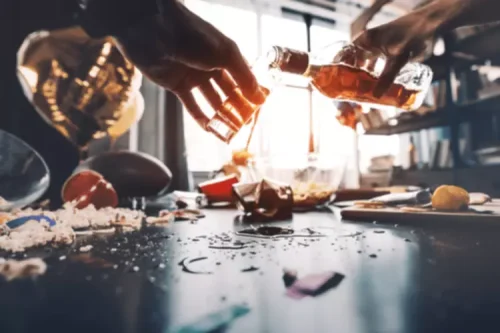
However, van Dam notes that emerging research shows some components in coffee may partly inhibit the effects of caffeine, although more studies are needed to explore these relationships further. “Still, it is helpful to keep track of the total amount of caffeine consumed during the day from all sources to avoid consuming too much,” he says. Caffeine reaches its peak level in your blood after an hour of consuming it, although you can feel the effects for up to six hours. You may find you do not get drunk when you drink the same amount as you used to.
Changes in metabolism with age
You can know your alcohol tolerance by paying attention to how much alcohol it takes to get you intoxicated. Another way to determine your alcohol tolerance level is to see a doctor for a liver enzyme test or an alcohol patch test. Continued alcohol use due to tolerance causes brain changes that affect how the brain responds to alcohol. Alcohol interacts with the reward system in the brain, which regulates pleasure and motivation.
Is there a cure for alcohol intolerance?
But when we drink in a new environment—such as going to the pub for the first time in six months—the compensatory response is not activated, making us more prone to experiencing alcohol’s effects. But if they start drinking at their previous levels again, alcohol-related how to increase alcohol tolerance impairments in cognition and behavior could return—but after having smaller amounts of alcohol. These changes in tolerance reflect the brain’s desensitization (increased tolerance) and resensitisation (reduced tolerance) to alcohol at the cellular level.

No Link Between Light Drinking and Longer Life, Study Finds
Like someone with signs of alcoholism, an individual with alcohol tolerance may experience irritability, anxiety, and depression, all of which can impact their ability to concentrate and be productive. When you’re whizzing like a donkey every ten minutes, you aren’t just losing water, you’re losing some important nutrients. Depletion of these nutrients can lead to hangover symptoms kicking in while you’re still at the party, dramatically decreasing your drinking abilities and social skills.
Consumption-induced tolerance
- Alcohol intolerance may cause a person to experience immediate reactions after they drink alcohol, or they may develop it hours after, the day after, or even later in life.
- Each type of tolerance is likely to lead to an increase in alcohol consumption and amplify your risks for developing dependence, organ damage, problems with completing tasks, and ultimately addiction.
- Alcohol interacts with the reward system in the brain, which regulates pleasure and motivation.
Alcohol and feeling sick

- Alcohol tolerance can increase the rate at which the liver eliminates drugs, making them less effective.
- It’s also important to remember that drinking as much as you used to after a period of drinking less (or not at all) could lead to greater intoxication, blackout and accidents.
- Some interactions between alcohol and medication can be life-threatening.
- They’ll spike your blood-sugar levels, and then you’ll crash, again leading to tiredness and/or headaches long before the party is over.
- “I would consider this a starting point to truly define what the risk is of developing head and neck cancer from cannabis use.
Leave a comment